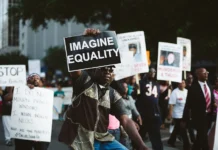oes the Church of England need evangelicals? The question is now a pressing one, given that the last few months of chaos over the issue of gay marriage seem finally to have done what decades of doctrinal indifferentism and even the advent of women priests failed to achieve: an evangelical rebellion among the Church of England’s most committed evangelical congregations.
Theo Hobson in The Spectator is confident of the answer: No, the C of E does not need evangelicals. To quote his reasoning:
Evangelical dynamism cannot renew the Church as a whole. Its energy is too counter-cultural; it presents Christianity as an identity in sharp contrast to the surrounding culture, it insists that a true Christian is marked out by brave dissent from liberal views on sexual morality…. An established Church cannot foreground such energy.
The argument is interesting: An established national church cannot ultimately oppose the culture of her nation. Some (including myself) would argue that this is precisely why no church should be established, since such politically motivated alliances always have a dominant partner, and history makes it very clear who the dominant partner always is. Hobson’s vision, while short on details, shows no concern for this particular outcome and seems to envisage the church as the rightly submissive handmaiden of the cultural Zeitgeist, existing to offer a religious and liturgical gloss that legitimates the liberal state and whatever its current moral tastes happen to be. In short, the church is there to express in religious idiom the values of the dominant class, in this case urban progressives. Since evangelicals will not do this, they are now surplus to requirements.
Hobson’s article stands in stark contrast to another article published last week at the dissident website UnHerd by the feminist writer Mary Harrington. In “The Death of Christian Privilege,” she raises a far more significant question than Hobson: Does the decline of Christianity also signify the liquefaction of meaning and the descent into the kind of moral chaos into which the West has descended, with its demolition of sexual taboos and its long war against the authority of the body? Her answer is yes, it does.
This point reveals the shallowness of Hobson’s analysis. Indeed, both he and Harrington cite the case of Kate Forbes as demonstrating the incompatibility of Christian faith with holding public office today. The difference, however, is that Hobson sees this as a reality requiring Christians to accommodate their views to public taste. Harrington sees it as a moment of significance, even tragedy, indicating how far our society now is from the universe of meaning within which Christianity operates. It is not simply the death of Christian privilege she is observing; it is the death of meaning itself.
Read it all in First Things



